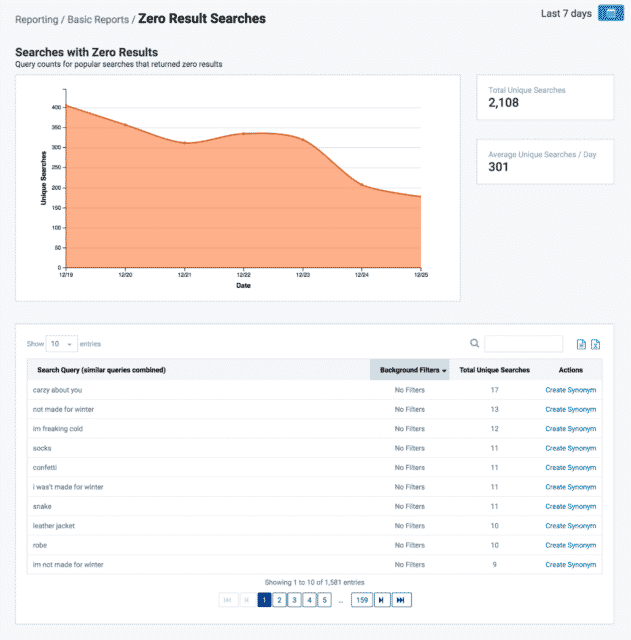Inflation isn’t the only rising cost with which the ecommerce industry has to contend. Digital advertising has grown more expensive in recent years. For example, Google Ads now has an average search-based CPC for the ecommerce industry of around USD $1.16, as shown in WordStream’s 2022 Google Ads Benchmark Report. Compare this to the 2016 benchmark of $0.29 CPC, and you’re looking at a 4x increase. On top of that, certain retail categories are experiencing more rapid CPC increases, like the beauty category, which saw an incredible 41% cost increase last year in Q3, as revealed by Statista’s U.S. reporting.
With this rise in costs in mind, it’s now crucial to attract more traffic organically and deliver outstanding shopping experiences on your ecommerce site that enhance the path to purchase. That may sound like a tall task, but there’s a hidden door to boost conversions – product metadata.
But before racing down the pathway to improving metadata, it’s essential to understand how to bring more shoppers to your online store – without inflating costs.
The value of organic product page ranking
A study by marketer Brian Dean shows that the top 3 Google search results get 75% of all clicks. Not only that, the number one organic result is ten times more likely to receive a click compared to a tenth-place result.
When ranking organically for product pages, it is a vital source of high-quality traffic. Shoppers searching for specific products are also likely to be in the latter stages of their research and decision-making process. These are your long-tail keywords – highly targeted search phrases that serve searcher intent.
The other significant benefit of organic traffic is that it’s free. So you have the opportunity to bring high-intent shoppers to your site at zero cost and lower your Cost of Customer Acquisition (COCA).
As CPC and paid advertising channels continue to rise, ranking organically for product pages reduces your COCA and increases high-quality and high-intent traffic.
What SERPs are (and aren’t) serving
According to an analysis by MOZ, original meta descriptions are shown in Search Engine Results Page (SERP) snippets in around 55% of cases. Sometimes a search engine takes a shortened version of the meta description and adds other text from the product page that it deems more relevant.
Despite SERPs taking control (some of the time) over how the product meta description displays in search results, it’s critical to create well–written descriptions that properly show the value of products to shoppers. Why? Because Google and other SERPs do their best to serve descriptions that best answer a shopper’s search query. By providing Google with well-crafted, informative copy that answers customers’ queries, you’re not only helping SERPs but also shoppers.
How to optimise product metadata
When you’re fighting for attention on SERPs, highly-optimised product page titles and meta descriptions are crucial to grab customers’ attention. First, a well-written product description copy that explains product features helps customers form better sense of the product, what it offers, and how it fits their needs. This include sizes, colours, styles, and other attributes.
Secondly, copy should illustrate benefits and how the product solves the customers’ problems. For example, running shoes that are positioned as helping your customer achieve “optimum performance for daily training”.
And lastly, product copy should also include research-based SEO keywords that help it appear higher in search results.
With metadata that fulfills your shoppers’ questions and purchase intentions, you encourage them to click through results and land on your ecommerce site.
Extending reach with long-tail keywords
Ahrefs performed a recent study of 1.9 billion keywords. They found that 60% of search traffic goes to keywords with over 1K monthly searches. But here’s the thing; those high-volume terms are head keywords (such as “shoes”, “laptop”, or “fashion trends”), which account for only 0.16% of the total 1.9 billion examined. Because these terms are searched in such massive frequencies, competition is extremely high.
The remaining 40% of search traffic goes to more descriptive, long-tail keywords, accounting for the remaining 99.84% of total keyword traffic. There are far more variations of keywords in the mix, which means far less competition when targeting specific long-tail terms. As such, the correct targeting of long-tail keywords offers an incredible opportunity to attract shoppers.
Tips for writing an excellent product meta description
Here are the top tips for creating excellent ecommerce meta descriptions:
- Keep it 160 characters or less.
- If your ecommerce platform doesn’t provide a preview tool, use a free SERP simulator to see how the meta description will appear.
- Make the description enticing for users to click through. Include details of the product or category and how it fulfills the customers’ needs.
- Relate the meta description to the page title to build an engaging link between the two.
- Include primary and secondary keywords.
- Be careful not to “stuff” keywords in.This reduces the quality of the copy.
- Use action words and phrases like “discover”, “explore”, or “find out how…”.
- Avoid duplicating descriptions. Each one should be unique to every product.
- Write for people, not robots. Having all the right keywords means nothing if shoppers aren’t compelled to click through.
Of course, writing each product meta description one at a time can be a mammoth task. Many businesses employ copywriters or SEO specialists (in-house and outsourced) to manage their metadata. Though particularly when your company is growing fast and running lean, it’s not always possible to have dedicated resources maintaining meta descriptions. An AI-driven technology solution, however, will help automate this process.
Beyond the SERP search
Another vital aspect of product metadata is how it supports onsite search, filter, and personalised recommendation functionality once shoppers arrive at your online store.
Garbage in, Garbage out (GIGO) is a commonly-known concept in computer science and mathematics. It states the quality of output is determined by the quality of input. In other words, if you’re writing product copy that’s not descriptive, lacks keywords, and doesn’t answer a shopper’s queries, you’re likely to return zero results or products that don’t match your shopper’s needs. Irrelevant results create frustrating shopping experiences. Personalised, highly-targeted results, however, will win your customers over.
Avoid the ‘zero results’ dead end
When shoppers search your site, the last thing you want them to see is that dreaded ‘0 results’ page.
Searchspring’s Zero Results report gives a detailed view of searches where no results were found. You can use these powerful insights to:
- Know what shoppers look for and adjust metadata with keywords and terms that are not listed in the description.
- Uncover opportunities for additional products you may not (yet) stock.
- Account for common spelling mistakes.
- Help you create synonyms for common zero-result terms and reduce occurrences.
Even when a zero results page is served, you can still remove the temptation to bounce and keep visitors engaged. Personalised recommendations can be placed anywhere on your site – and are highly effective on zero results pages. Based on AI models and behavioural data, these recommendations show every shopper what’s best suited to them.

The price of not getting product metadata right
The cost for driving traffic to your site through paid advertising seems to be ever-increasing. However, with a solid organic strategy supported by properly managed product metadata, you gain more free traffic and reduce your COCA. But that’s just unlocking the door to increasing ecommerce conversion rates.
When your shoppers arrive at your ecommerce store (whether by paid or organic sources), you risk losing sales quickly if you don’t serve what they need. All that time and effort spent building traffic can be for nothing without the tools to deliver shoppers more relevant, personalised experiences.
If you’re looking for the technology to go beyond basic shopping experiences, Searchspring delivers the #1 search, merchandising, and personalisation platform built exclusively for ecommerce. The solution also works alongside Okkular.io, an AI-powered product tagging, product descriptions and visual search automation tool.
Schedule your tailored demo of Searchspring to learn more about how to boost the effectiveness of your product metadata and put the right products in front of the right shoppers at the right time. You’re just a few clicks away from learning how to fully navigate the pathway to boost conversions and deliver ultimate shopping experiences.




